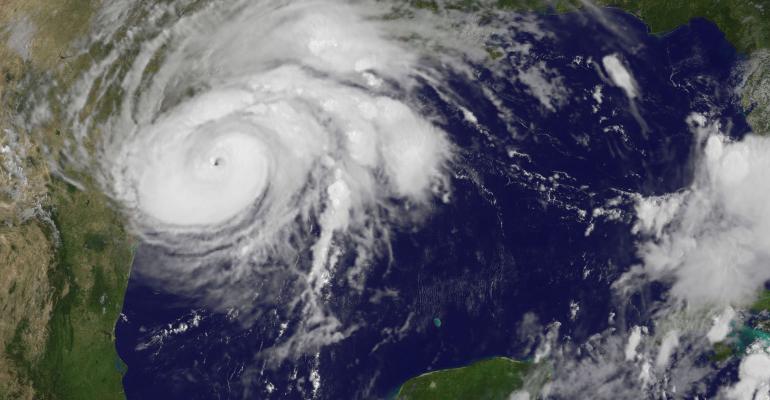Underestimating the impact of climate and extreme weather on investors' portfolios could be putting holdings and assets at risk, according to a BlackRock report. Under a "no climate action" scenario, the report notes that 58% of U.S. metro areas will likely suffer annualized GDP losses of 1% as early as 2060. But not all sectors are likely to be impacted evenly.
The report is a "starting point" that looks at long-dated assets tied to specific locations: U.S. municipal bonds, commercial real estate and U.S. utilities. When it comes to bonds, Florida will be most affected, given its coastal geography, with Naples, Panama City and Key West seeing likely annual GDP losses of up to 15% or more because of severe coastal storms. "Losses would likely come in big weather-driven shocks that could be much larger for a given year," according to the report. "The vulnerabilities revealed in the analysis have important implications for municipal bond issuers and investors."
To emphasize the point, the report compared two bonds with similar characteristics that are located in different geographies. It found that a water revenue bond in Jupiter, Fla., an area prone to damage from hurricanes and tropical storms, had almost identical yields (after adjusting for credit quality) when compared with a bond with similar characteristics in Neptune, N.J., a location relatively protected against severe storms. Had climate impacts been taken into account, the report explained, the Neptune bond should carry a lower yield (and higher price) compared with Jupiter, because it would be a less risky asset.
The report also modeled hurricane risk onto a proxied list of approximately 60,000 U.S. commercial mortgage-backed securities, finding that “within three decades, the risk of [commercial properties] being hit by a Category 5 hurricane is projected to rise 275% under a ‘no climate action’ scenario.” Flood risk, too, is modeled to rise, according to the report, along with energy expenses.
Investors holding utilities, meanwhile, aren’t pricing in the risk of extreme weather events, according to BlackRock, despite the reality of climate-related risks. “Overweighting companies with low climate risk exposure and underweighting those with high exposure may pay off as the risks compound over time,” the report concluded. “Investors also will need to include climate-related risks in their analysis of financial risks and opportunities. This is most relevant for long-term investors.”
“Asset-level analysis is key for investors,” said Brian Deese, global head of sustainable investing at the firm. “We find that the risk posed by more frequent and severe weather events such as hurricanes and wildfires is not fully reflected in the price of many assets, including U.S. utility equities. A rising share of municipal bond issuance is set to come from regions facing climate-related economic losses. And many high-risk commercial properties are outside official flood zones.”





